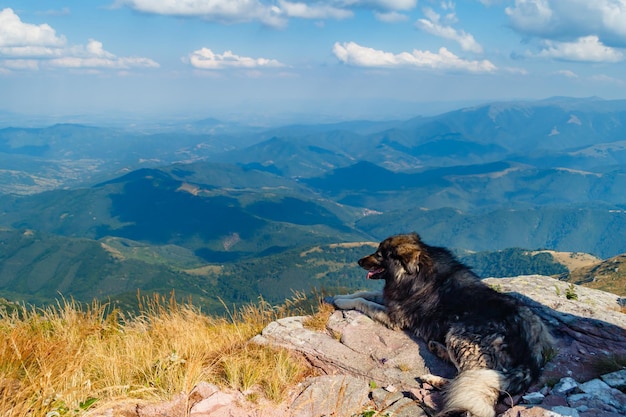How to Protect Pets From High-Altitude Hazards in Summit County

How to Protect Pets From High-Altitude Hazards in Summit County
Living in Summit County means enjoying breathtaking mountain views, crisp air, and the thrill of outdoor adventure. For pet owners, sharing these experiences with furry companions brings unmatched joy, but it also comes with unique challenges. High-altitude environments present special risks for dogs and cats, especially during the unpredictable weather of August. From altitude changes and sun exposure to sudden storms, mountain living requires thoughtful care to keep pets safe and comfortable. At Passion Fur Paws, our mobile veterinary team is dedicated to helping families protect their pets from these hazards while ensuring the convenience and peace-of-mind that only in-home veterinary care can provide throughout Summit County and surrounding communities.
In this guide, we will explore the most common high-altitude hazards affecting pets in Summit County. You will learn how to recognize signs of altitude sickness, prevent sunburn, manage hydration, and prepare for sudden weather changes. We will also discuss how our mobile vet services make it easier than ever to access essential care right at your doorstep, reducing stress for both you and your pet. If you are searching for a "mobile vet near me" who truly understands the demands of mountain life, Passion Fur Paws is ready to help. For a deeper look at keeping your pet healthy year-round, consider scheduling a comprehensive pet exam with our mobile veterinary professionals.
Recognizing High-Altitude Hazards in Pets
Mountain living brings a set of unique risks that can affect pets in subtle or dramatic ways. Recognizing when your dog or cat might be struggling with altitude or weather-related hazards is crucial for timely intervention. Symptoms of high-altitude illness in pets can appear shortly after arriving in Summit County or during outdoor excursions. Warning signs to watch for are rapid breathing, excessive panting, coughing, weakness, vomiting, pale gums, or an unsteady gait. Additionally, pets may seem more lethargic than usual or lose their appetite after a day spent at higher elevations.
Sunburn is another danger that can sneak up on pets, especially those with light-colored or thin coats. Red, tender skin, hair loss, and visible discomfort when touched are all indicators that your pet has had too much sun. Afternoon storms in the mountains can roll in quickly, and thunder or sudden temperature drops may lead to anxiety or even hypothermia. Pets that shiver, hide, or refuse to move during storms are showing signs of stress or cold exposure. Hydration levels are also impacted at altitude; dry nose, tacky gums, and decreased skin elasticity can signal dehydration.
If your pet is a senior or has chronic health conditions, these risks are amplified. Older pets may be more sensitive to oxygen changes, have lower tolerance for exertion, and require additional monitoring. For these pets, a wellness examination with our mobile veterinarians can help identify issues before they become emergencies.
Why High Altitude Affects Pets in Summit County
Summit County sits above 9,000 feet, where decreased oxygen levels and intense sunlight can challenge even the healthiest animals. In thinner air, pets' bodies work harder to deliver oxygen to tissues, which means dogs and cats acclimated to lower elevations may struggle when visiting or moving to the area. The risk of altitude sickness increases with rapid ascents, vigorous activity, or underlying health problems.
Sun exposure at high altitude is more severe because the atmosphere provides less protection from ultraviolet rays. Pets with light or sparse fur, pink noses, or exposed skin are particularly vulnerable to sunburn. August’s variable weather patterns also bring afternoon thunderstorms, which can arrive with little warning. These storms not only pose a risk of hypothermia if pets are caught outside but also contribute to lightning anxiety and noise phobias.
Hydration is another concern. The dry mountain air and increased respiratory rates mean pets lose moisture more quickly through panting and evaporation. Without proper water intake, they may become dehydrated faster than expected. This can be particularly problematic during hikes or long outdoor days, when pets may be distracted or less likely to drink.
Certain breeds are more sensitive to altitude changes. Brachycephalic (short-nosed) dogs, such as Bulldogs and Pugs, and senior animals are at an even higher risk. Pets with heart or lung conditions can also experience worsened symptoms in the mountains. Our mobile veterinary team sees these challenges frequently, and we prioritize personalized care to help each pet thrive in high-altitude environments.
Managing and Treating High-Altitude Risks for Pets
When signs of altitude sickness, sunburn, or dehydration appear, timely intervention is essential. For mild symptoms of altitude illness, such as increased breathing or mild lethargy, bringing your pet indoors to a cool, calm environment and offering water may help. Watch closely for improvement; if symptoms persist or worsen, professional assessment is necessary.
Treating sunburn in pets involves gently cooling the affected area, minimizing sun exposure, and providing supportive care to prevent skin infection. Our mobile veterinarians can guide you on safe topical treatments and pain relief if needed. In some cases, more advanced wound care may be required, especially if blistering or open sores develop.
Dehydration is managed by encouraging small, frequent sips of water and offering moisture-rich foods when appropriate. If your pet cannot keep water down, seems disoriented, or shows signs of severe dehydration, such as sunken eyes or persistent vomiting, immediate veterinary attention is crucial. Intravenous fluids and further diagnostics may be needed, which our mobile team can provide in the comfort of your home or at our stationary location.
Management of weather-related anxiety, such as fear of storms, may involve creating a safe, quiet space for your pet during turbulent afternoons. Calming techniques, desensitization, and, in some cases, prescription medications can make a significant difference. Our mobile veterinarians can work with you to develop a tailored plan for your pet’s specific needs.
For pets with chronic conditions or those at special risk, regular monitoring and proactive care are key. Our mobile vet services in Summit County include thorough check-ups, in-home diagnostics, and ongoing support for managing altitude-related health challenges. We strive to provide the most convenient and stress-free pet care possible, reducing the need for travel and unfamiliar clinic environments.
Preventing High-Altitude Hazards: Mountain Pet Safety Tips
Prevention is the best way to keep pets healthy and happy in the mountains. The first step is to allow new pets or visitors time to acclimate. Gradually increasing activity over several days gives your pet’s body time to adjust to the lower oxygen environment. Always keep a close eye on your pet during hikes or outdoor play, especially during the first week at elevation.
Sun protection is vital. Applying pet-safe sunscreen to vulnerable areas, such as the nose, ears, and belly, can prevent painful burns. Providing shade and limiting midday outdoor time during peak sun hours are effective strategies. Remember that even on cloudy days, UV rays can be strong at altitude.
Hydration is another cornerstone of high altitude pet care in Summit County. Always carry extra water for your pet and offer it regularly, even if they do not seem thirsty. Watch for signs of dehydration and encourage rest breaks in the shade. High-quality nutrition also supports your pet’s resilience at altitude.
Preparing for afternoon storms is important. If you know your pet is anxious during thunder or temperature drops, have a plan for where they can retreat indoors. Keeping pets on a leash or within a secure yard prevents them from bolting in fear. For dogs who enjoy hiking, always check weather forecasts and avoid exposed trails during stormy hours.
Regular veterinary care is essential for early detection of altitude-related health issues. Our mobile vet near me services make preventive care easy, bringing wellness exams, vaccinations, and diagnostic testing directly to your home. For those interested in more targeted support, our wellness examination services are designed to address the specific needs of mountain pets.
When to Seek Veterinary Care for High-Altitude Hazards
Knowing when to call your veterinarian can save your pet’s life. Immediate veterinary attention is warranted if your pet shows severe or persistent signs of altitude illness. These include collapse, difficulty breathing, blue or pale gums, repeated vomiting, or unresponsiveness. Pets suffering from heatstroke, severe sunburn, or significant dehydration need prompt intervention.
If you are unable to safely transport your pet or if they become distressed by travel, our mobile veterinary professionals can come directly to your location in Summit County. This personalized, in-home care reduces anxiety for both pets and owners, making it easier to get the help you need quickly. If you are uncertain whether your pet’s symptoms require urgent attention, do not hesitate to contact our team for advice.
For ongoing mountain pet safety tips and guidance on high altitude pet care in Summit County, our veterinary team remains a trusted resource. We encourage pet owners to maintain regular check-ins, especially for seniors or those with chronic health concerns. Regular preventive care can help catch subtle issues before they escalate.
Our emergency veterinary care information page provides guidance on what to do and how to reach us if your pet is experiencing a crisis. If you are ever in doubt, reach out to our mobile veterinarians for clear, compassionate support.
Keeping Your Pet Safe in Summit County: Your Local Mobile Vet Solution
Protecting pets from the hazards of high-altitude living is a shared priority for every animal lover in Summit County and surrounding communities. By recognizing signs of altitude sickness, sunburn, dehydration, and storm anxiety, you can take quick action to safeguard your pet’s wellbeing. Prevention begins with acclimation, sun protection, hydration, and regular veterinary check-ups tailored to the demands of mountain life.
At Passion Fur Paws, our mobile veterinary professionals are committed to providing comprehensive, personalized care in the comfort of your home. Whether you need a routine wellness examination, urgent support, or guidance on acclimating a new pet, we are here to help every step of the way. If you are searching for a "mobile vet near me" who truly understands the unique needs of mountain pets, look no further.
To schedule an in-home visit or learn more about our high altitude pet care in Summit County, contact our veterinary team at (970) 210-6674. We are always ready to support you and your pet with expert advice and compassionate service. For additional information on preventive care, visit our wellness examination page. Together, let’s make every mountain adventure a safe and joyful experience for your four-legged family members.
Medical Disclaimer: This blog is for informational purposes only and does not replace professional veterinary advice, diagnosis, or treatment. Always consult with your veterinarian for any concerns about your pet’s health or before making changes to their care routine.



















